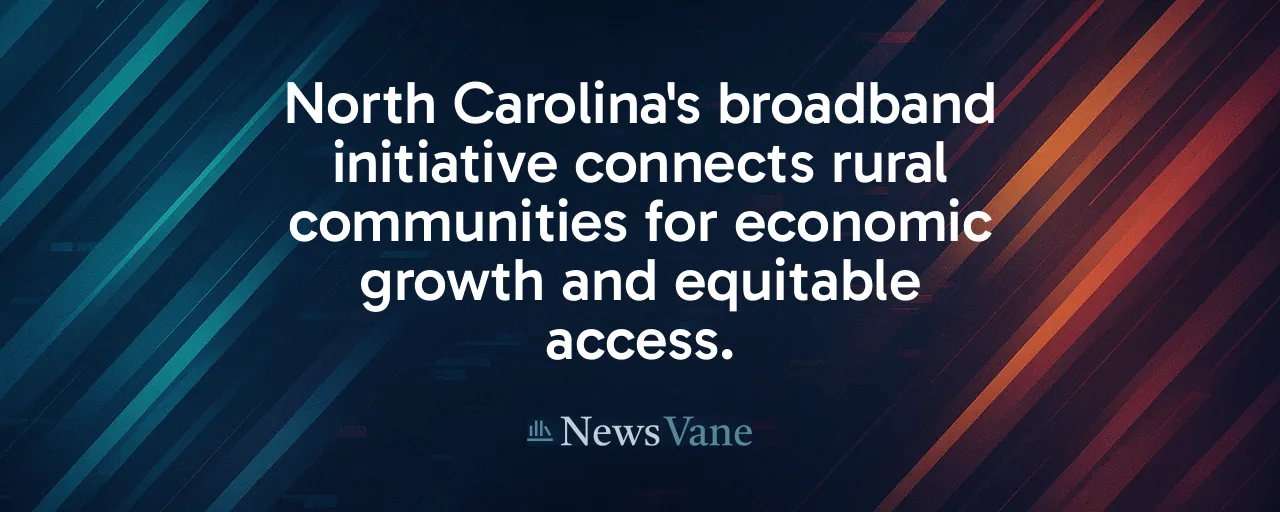Lighting Up Rural North Carolina
In the quiet corners of North Carolina, where internet signals often fade into the landscape, a transformative effort is taking root. On June 11, 2025, Governor Josh Stein announced $58 million in projects to deliver high-speed internet to 10,076 households and businesses across 26 counties. This initiative, part of the Completing Access to Broadband (CAB) program, seeks to connect communities that have long been digitally isolated.
The plan combines $41 million from federal American Rescue Plan funds with $17 million from private broadband providers. For rural residents, this investment promises better streaming and opens pathways to education, healthcare, and economic growth, addressing a gap that has left many feeling cut off from modern life.
The Power of Connectivity
High-speed internet is a catalyst for progress. Research shows that a 10 percent increase in school connectivity can boost GDP per capita by about 1.1 percent in developing regions. In rural U.S. counties, strong broadband correlates with 44 percent faster economic growth and 18 percent higher income gains compared to areas with weak access. These gains translate into new jobs, thriving businesses, and stronger local economies.
Connectivity also transforms healthcare and education. Telemedicine and online courses become accessible, leveling the playing field for remote communities. State officials and digital equity advocates view broadband as a modern necessity, essential for building resilient, inclusive communities in an increasingly digital world.
Inside the CAB Program
The CAB program operates through collaboration. Counties work with the North Carolina Department of Information Technology to identify unserved areas, and prequalified providers like Brightspeed and Spectrum compete to build infrastructure. These providers commit to delivering at least 100 Mbps for both downloads and uploads, ensuring reliable service.
This funding wave will connect 99.48 percent of unserved locations in Martin County and 1,314 households in Cabarrus County, among others. Since 2023, CAB and GREAT grants have invested nearly $630 million to reach 245,000 locations, a milestone Governor Stein frames as a step toward equal digital access for all North Carolinians.
Diverse Views on Funding Broadband
Debates persist over how to finance broadband expansion. Some policymakers advocate for private-sector leadership, emphasizing that competition fosters innovation and efficiency. They support targeted subsidies, such as consumer vouchers, to aid unserved areas while avoiding public projects that might compete with private networks.
Others argue that broadband is a public necessity, requiring significant government investment to ensure universal access. They point to North Carolina's digital equity initiatives, like device distribution and literacy programs, as critical for making connectivity meaningful. Public-private partnerships, as seen in the CAB program, bridge these perspectives by leveraging both public funds and private expertise.
Navigating the Road Ahead
Challenges loom large. Building in rural areas is expensive, and thousands of locations remain unserved. Affordability and digital skills also matter, because access alone does not guarantee full benefit. Studies from China suggest that without training, broadband can deepen income inequality by favoring wealthier households, a lesson for North Carolina's planners.
Yet opportunities abound. The state's approach, blending federal, state, and private funds, is a model for others. The federal Broadband Equity, Access, and Deployment program, with $42.5 billion, could further accelerate progress. Success hinges on reaching the most remote areas and ensuring residents can afford and use the service.
A Connected Tomorrow
North Carolina's broadband push is a bold step toward equity and prosperity. For a small business in Surry County or a student in Person County, reliable internet could unlock new markets or educational opportunities. These projects affirm that rural communities deserve a place in the digital era.
The path forward requires focus on implementation and inclusion. Transparent, partnership-driven models like CAB offer a roadmap for other states. Ensuring that funds prioritize isolated areas and support affordability will shape the initiative's impact.
Connectivity is a bridge to a better future. North Carolina's efforts show that with shared commitment, even the most remote regions can thrive in a digital world, fostering growth and unity across the state.
